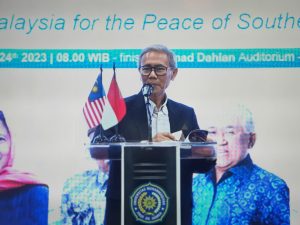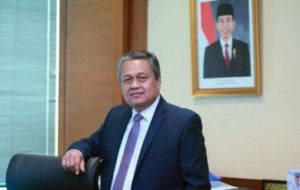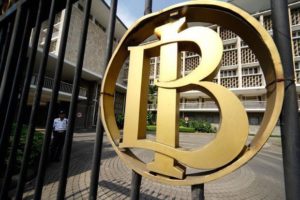
Darmin Nasution" width="300" height="172" /> Chief economic minister Darmin Nasution
Jakarta, 19 Rajab 1437/27 April 2016 (MINA) – The government is preparing instruments to accommodate the funds repatriated through tax amnesty, so they would offer added value in terms of boosting the countrys economy, Chief Economic Minister Darmin Nasution stated.
“We have to prepare the instruments for the repatriation of funds from abroad in the face of possible implementation of the tax amnesty policy. The funds can be kept in the form of bank deposits, but the government should have several alternatives such as state debentures (SUN), for instance. It can be in rupiah or foreign currencies,” the coordinating minister for economic affairs stated here on Tuesday.
Darmin did not offer an explanation pertaining to the ideal instruments in facilitating the repatriation of funds, but he made assurance that their inflow could bring about social and physical developments in the long run, Antara was quoted by Mi’raj Islamic News Agency (MINA) as reporting.
“That can be a choice, but the owners might also want to enjoy greater yields, thus we can provide infrastructure bonds or investment in important industries,” Darmin stated.
Also Read: Saudi Arabia Wins Bid to Host World Expo 2030
Bank Indonesia (BI), the Indonesian central bank, has forecast that the country can increase its revenue by Rp45.7 trillion if it imposed a tax amnesty, which will help in the repatriation of Rp560 trillion funds stashed by Indonesians in foreign countries.
“If the tax amnesty is followed with an improvement in the countrys taxation and administrative systems, it will increase the ratio of tax to gross domestic product,” BI Governor Agus Martowardojo remarked on Monday.
Speaking at a working meeting with Commission XI on financial and banking affairs of the House of Representatives, the BI governor noted that the potential revenue forecast was based on the Global Financial Integrity data for 2015.
The Global Financial Integrity 2015 data revealed that funds belonging to Indonesians stashed abroad totaled Rp3,147 trillion.
Also Read: 148 Products from Indonesia Promoted at Sarawat Superstore Jeddah
Of the aforementioned amount, only some 60 percent could be pardoned based on the tax amnesty scheme.
The tax amnesty facility will not be applicable on the remaining 40 percent as the funds were accumulated through illegal means, such as corruption, narcotics trade, and human trafficking.
In the financial market, Agus observed that the penalties levied on the repatriated funds, amounting to Rp560 trillion, should be absorbed by the countrys long-term financial instruments.
Agus noted that a swift flow of funds into the country could spark turmoil and speculative buying in the financial market if they were not accommodated by adequate financial instruments.
Also Read: Packaging Industry Supports Halal Ecosystem
“We should boost the repatriation of funds, absorbing them into long-term financial instruments, so they would not become a burden on the macro economy in the short term,” noted the BI governor.
Based on BIs experience, the inflow of funds from a tax amnesty scheme triggered increased demand for government debt papers (SBN). SBN is one of the financial instruments being prepared by the government to facilitate the inflow of fund repatriation.
If the demand is higher than the availability of SBN, there are fears that it would even put pressure on the price of state debt papers. It could also bring down the interest rates in the inter-bank money market. On the other side, the banking liquidity will increase and boost credit extension. (T/R07/R01)
Mi’raj Islamic News Agency (MINA)
Also Read: Indonesia-Japan Agree on Energy Transition Cooperation








![Israeli tanks and APC’s gather by the Israeli – Lebanese border. Amid Israel’s escalating campaign against Hezbollah in Lebanon on September 30, 2024. [Erik Marmor/Getty Images]](https://en.minanews.net/wp-content/uploads/2024/10/IMG_20241001_203226-300x197.jpg)






















 Mina Indonesia
Mina Indonesia Mina Arabic
Mina Arabic